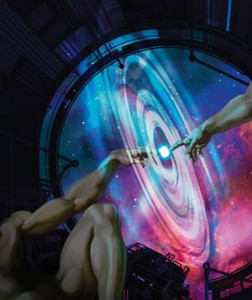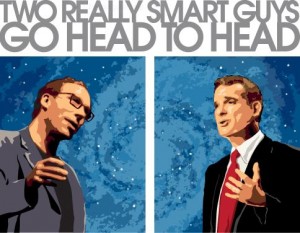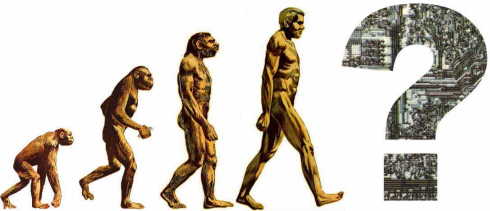 Paul warned Timothy, “For the time is coming when people will not endure sound teaching, but having itching ears they will accumulate for themselves teachers to suit their own passions,” (2 Ti 4:3). Of course such misleading teaching has been occurring ever since Paul’s day but the Universalist rhetoric from Rome is becoming astounding. Pope Frank is doing back flips for the approval of the world albeit this says more about Frank than then world (Jn 15:19).
Paul warned Timothy, “For the time is coming when people will not endure sound teaching, but having itching ears they will accumulate for themselves teachers to suit their own passions,” (2 Ti 4:3). Of course such misleading teaching has been occurring ever since Paul’s day but the Universalist rhetoric from Rome is becoming astounding. Pope Frank is doing back flips for the approval of the world albeit this says more about Frank than then world (Jn 15:19).
That’s right, Pope Frank is at it again… telling atheists they get a free pass to heaven without accepting the Gospel that is. Of course, this is not the first time as he said it back in May (here and here) but the Vatican was quick to post a reply that, “no atheists surely do go to hell” here. Appaently the so-called infallible vicar begs to differ and has written a letter to the editor of the Italian newspaper La Repubblica indicating his opinion that atheists who obey their conscience merit God’s favor and apparently are so justified to salvation.
A good Bible dictionary defines sin as “the failure or refusal of human beings to live the life intended for them by God their creator.”[1] However, Pope Frank does not understand the basic concept of sin and allows that atheists who obey their conscience (no matter how seared) are justified by their good works. Pope Frank writes:
First of all, you ask me if the God of Christians forgives one who doesn’t believe and doesn’t seek the faith. Premise that – and it’s the fundamental thing – the mercy of God has no limits if one turns to him with a sincere and contrite heart; the question for one who doesn’t believe in God lies in obeying one’s conscience. Sin, also for those who don’t have faith, exists when one goes against one’s conscience. To listen to and to obey it means, in fact, to decide in face of what is perceived as good or evil. And on this decision pivots the goodness or malice of our action.[2]
Apparently the ψευδοπροφήτης wants us to believe the issue for those who do not believe in God is to merely obey their conscience. Not so… God demands they repent of their unbelief. While God certainly wants us to behave in morally virtuous ways, good actions are not what merits God’s ultimate approval. In justification, God imputes the righteousness of Christ to the believer, which cancels God’s judgment on the believer. A truly biblical Christian theology leads to the conclusion expressed by Baptist theologian Dr. Millard Erickson:
Justification is a forensic act imputing the righteousness of Christ to the believer; it is not an actual infusing of holiness into the individual. It is a matter of declaring the person righteous, as a judge does in acquitting the accused. It is not a matter of making the person righteous or altering his or her actual spiritual condition.[3]
So it follows that no one earns their salvation. Justification is by faith alone (Rom3:28). An idea that is expounded on and clarified in Ephesians:
“But God, being rich in mercy, because of the great love with which he loved us, even when we were dead in our trespasses, made us alive together with Christ—by grace you have been saved— and raised us up with him and seated us with him in the heavenly places in Christ Jesus, so that in the coming ages he might show the immeasurable riches of his grace in kindness toward us in Christ Jesus. For by grace you have been saved through faith. And this is not your own doing; it is the gift of God, not a result of works, so that no one may boast.(Eph 2:4–9)
While Frank is correct that disobeying one’s conscience constitutes sin (1 Cor 8:28-29), he misses the mark by a wide margin. Scripture is clear that “everything that does not come from faith is sin” (Rom 14:23). Unbelief is sin. “And without faith it is impossible to please him, for whoever would draw near to God must believe that he exists and that he rewards those who seek him” (Heb 11:6). Jesus taught that the mile-wide road advocated by Pope Frank amounts to a false Gospel:
“Enter by the narrow gate. For the gate is wide and the way is easy that leads to destruction, and those who enter by it are many. For the gate is narrow and the way is hard that leads to life, and those who find it are few” (Mt 7:13–14).
The terms “few” and “narrow” seem to escape the pontiff. He is indeed a false prophet of the worst sort. He is pied piper to perdition encouraging the atheist in his rebellious suppression of the truth (Rom 1:18). This is exactly the sort of false teaching we expect from the one with “horns like a lamb, who speaks like a dragon.” (Re 13:11)
[1] Allen C. Myers, The Eerdmans Bible Dictionary (Grand Rapids, MI: Eerdmans, 1987), 951.
[2] “Pope Francis’ Letter to the Founder of “La Repubblica” Italian Newspaper” Vatican City, September 11, 2013 accessed September 12, 2013, http://www.zenit.org/en/articles/pope-francis-letter-to-the-founder-of-la-repubblica-italian-newspaper?utm_source=feedburner&utm_medium=feed&utm_campaign=Feed%3A+zenit%2Fenglish+%28ZENIT+English%29
[3]Millard J. Erickson, Christian Theology., 2nd ed. (Grand Rapids, MI: Baker Book House, 1998), 969.







